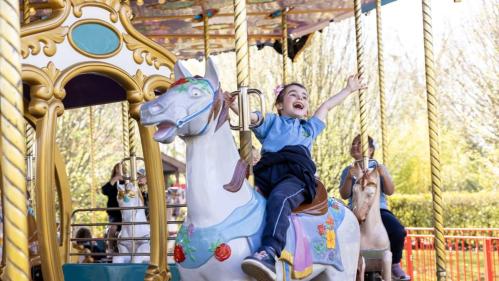Today is Universal Children's Day, and it is celebrated every year to promote international togetherness, awareness among children worldwide, and improving children's welfare.
This got us thinking about the concept of play - such a simple thing, that as parents we take for granted at times.
Play is a basic need and is central to children’s wellbeing. Play is so important that the UN Convention on the Rights of the Child recognises it as one of children’s fundamental human rights. Sadly, many children in Ireland and around the world lack safe spaces to play.
In response to this, the IKEA Foundation is teaming up with six leading children’s rights organisations and together with IKEA to put play at the heart of their new good cause campaign – Let’s Play for Change. In celebration of Universal Children’s Day, IKEA is calling on people from all over Ireland to join together, to turn that curtain into a super hero outfit, or the couch into a fortress, and say yes to play!
We got thinking about the importance of play for children, and why it is integral to growth and creativity - so we got in touch with Cliona Carey, a clinical psychologist and play expert.
Having had a lengthy chat with Cliona about all things play, we came up with a list of ten important reasons why all children should play every day, and why we should get involved in the play time.
1. Explore Creativity
Children are curious by nature, and allowing them time to play will help them to explore this curiosity, and enhance their creativity. It seems minor, but allotting time each day to special 'play time' is a great way for your little ones to discover themselves, and their personality.
2. Some Control
For the most part, children have little to no control of what goes on in their lives. They get up at a specific time, they go to school, they eat the food you make them, and they go to bed when you say so. However, during play time, they are in control. This reminds them that they have some say in their life, albeit a small one.
3. Emotional Security
Play reduces stress. Play helps your children grow emotionally. It is joyful and provides an outlet for anxiety and
4. Bolsters Self-Confidence
Play time gives children a chance to be themselves, and act totally natural. This, in turn, will boost their self confidence, as it is a safe space where they can be free.
5. Play lays the foundation for literacy.
Through play children learn to make and practise new sounds. They try out new vocabulary, on their own or with friends, and exercise their imagination through storytelling.
6. Encourages Communication
Play encourages adults to communicate with the children in their lives. Adults support play by giving children opportunities to play, and by knowing when to intervene, and when not to intervene.
7. Play Develops Motor Skills
Kids will develop and grow without even realising it! When they touch their toes, they learn about co-ordination, balance and spatial relationships. When they play with a ball, they strengthen their fine-motor skills.
8. Teaches Adults Patience
And lord knows, we need it sometimes! If you do choose to join in your child’s play make sure that you don't try to take it over. Structured adult-led activities have their time and place but remember to allow for time for children to control and decide their own play.
The lovely folks at IKEA conducted a large study around play, and the reasons we need it:
People across cultures have identified 5 key motivators that explain why we play. We call these Play Needs and while multiple Play Needs can be satisfied through one activity, each has a clear emotional benefit at its core.
Play to Repair: Play helps people to rest, rebalance and ultimately repair physically and mentally.
Play to Connect: Play enhances bonds and helps people to get closer to friends, family and loved ones.
Play to Escape: Play offers moments of freedom away from everyday obligations, rules and routines.
Play to Explore: Play serves as a tool to learn and develop outside the usual frame of reference.
Play to Express: Play provides a platform to be creative, giving people permission to express a different version of themselves.
Each year, IKEA runs a soft toy drawing competition worldwide, where all children aged twelve and below are invited to draw the soft toy of their dreams.
Ten lucky winners have been selected and their favourite imaginary creatures have been turned into cuddly soft toys which are currently being sold in IKEA stores all over the world. Ten-year-old Mira from Bulgaria designed a happy dachshund with a horn and rainbow-coloured wings, six-year-old Joseph from Australia designed a bright orange fox with long pointy ears, while eight-year-old Caroline from the USA created a rainbow cloud that she believes can spread joy to lots of people.
The SAGOSKATT limited edition collection is now available in IKEA Dublin and the proceeds from the sale of this range will go to the ISPCC, helping them to provide its essential 24 hour Childline listening service for children throughout Ireland.
Celebrate Universal Children's Day, and play to your heart's content!










